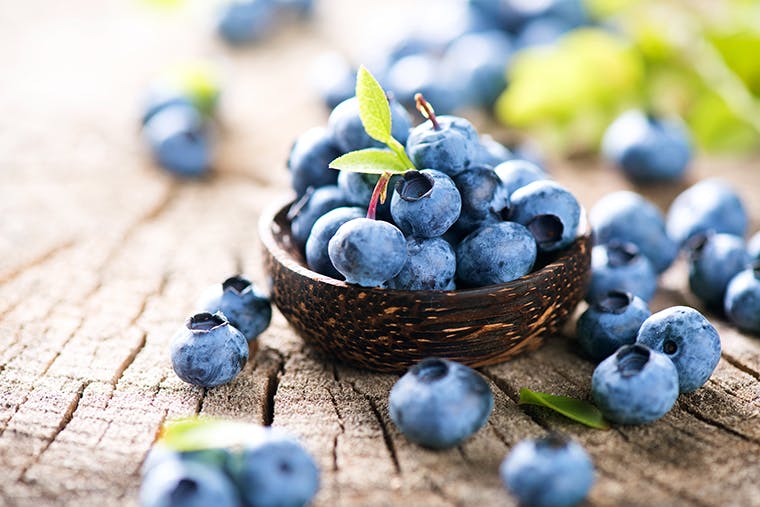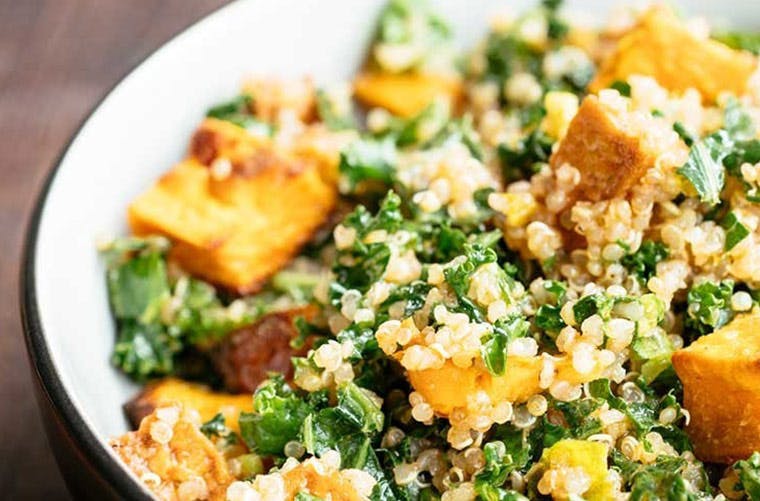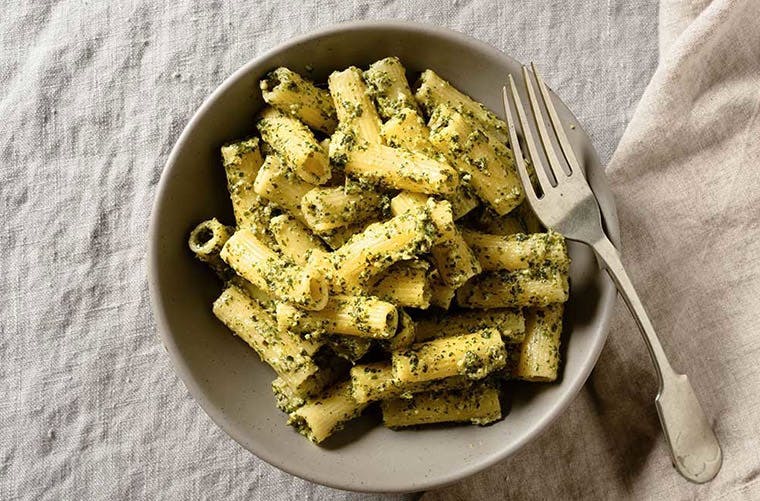What Are Antioxidants? Antioxidant Foods and Vitamins

What do you think of when you hear the word “antioxidants”? Whether you’re talking to your doctor about eating a healthy diet or your best friend who loves health and fitness, chances are that you’ve heard the word “antioxidant” before. But what are antioxidants exactly, what do they do and do antioxidants help support the immune system?
Key Takeaways
- Antioxidants are substances that neutralize free radicals—unstable molecules produced during normal bodily processes and environmental exposures. By donating electrons, antioxidants help prevent oxidative stress which can damage cell membranes.
- Antioxidants can help support immune function by working synergistically with other nutrients to maintain cellular function.
- Key antioxidant nutrients include vitamins C, E, A and minerals like zinc and selenium. Consuming a healthy balanced diet can help with getting these nutrients.
What Are Antioxidants?
Antioxidants are substances that may prevent or slow damage to cells caused by free radicals.1 Let’s break this concept down, starting with free radicals:
What Are Free Radicals?
Your cells produce free radicals when your body processes food, exercises, reacts to sunlight, air pollution or cigarette smoke in the environment.1 Free radicals are waste substances, but they aren’t necessarily a bad thing, unless you have too much of them. These molecules have at least one unpaired electron in their orbit and can “steal” electrons from other cells in the body, a process known as oxidative stress.2
This process can damage the structure of your cells and impair their function.1,2 For example, unchecked damage from free radicals can change what’s coded in a strand of DNA and long term oxidative stress may damage cells in a way that may lead to chronic diseases.1
What Do Antioxidants Do to Free Radicals?
This is where antioxidants come into play. An antioxidant is defined as a substance that inhibits or delays the oxidative process of transferring an electron from a functional cell to a free radical.2,3 They counteract and neutralize free radicals by giving them electrons to keep the body in balance.1
What Are the Benefits of Antioxidants
By neutralizing free radicals, antioxidants can help combat oxidative stress on cells.1,2 Studies have suggested that antioxidants may help support your immune system.3 Immune cells rely heavily on contact with each other; if they are compromised or damaged by oxidative stress from free radicals, they may not function effectively or at all.3
What Does Oxidative Stress Do?
Oxidative stress due to an excess of free radicals can lead to a range of health concerns. These free radicals can damage the proteins, fats and DNA within cells.2 As cells take on damage, the body may respond with a protective reaction: inflammation. Excessive inflammation can lead to unnecessary stress and harm to the body, and if not remedied, may be a contributing factor in a range of chronic conditions.2
Do Antioxidants Help the Immune System?
While initial research on antioxidants as a catch-all for fighting disease was mixed, some trials did report benefits. An 18-year study by Physicians’ Health Study found that supplementing with beta-carotene was associated with some degree of reduction in cognitive decline.1
The most effective way to care for the immune system with the intent of preventing disease has been to eat a complete diet of fruits, vegetables and whole grains that contain the necessary minerals, fiber and antioxidants to keep the body working as it should.1 Antioxidants themselves work best when combined with other nutrients and plant chemicals that come from eating a healthy diet.1
What Vitamins and Minerals are Considered Antioxidants
Certain vitamins have antioxidant activity:
- Vitamin C supports cellular function of the innate and adaptive immune systems.3 This vitamin helps to protect the body due to anti-inflammatory, antibacterial properties.3
- Vitamin E helps to protect cells from oxidative stress and is involved with maintaining immune cell function by preventing the breakdown of their membranes.3
- Vitamin A (carotenoids) helps with the development and function of T and B lymphocytes, which are components of the adaptive immune system.3
Other minerals and nutrients are considered antioxidants as well:
- Copper is an essential mineral that helps to produce energy for the body, break down and absorb iron and build red blood cells, collagen, connective tissues and neurotransmitters within the brain.6 It’s also a component of superoxide dismutase, an antioxidant enzyme.6
- Selenium is a trace element with antioxidant properties that is nutritionally essential for humans and plays critical roles in reproduction and DNA synthesis.5
- Zinc helps to produce the active form of vitamin A, which means it plays a role in the function of the adaptive immune system.4
Antioxidants can neutralize and reduce free radicals and can help to protect the structural integrity of cells and tissues. This isn’t limited to the immune system; they affect cells in other systems of the body too.3
Where Do I Get Antioxidants?
Antioxidants became well known in the 1990’s, when scientists began to understand the effects that free radical damage was having on the body.1 Since then, antioxidants have been made available in a variety of formats, but they tend to work best in combination with other nutrients, plant chemicals and other antioxidants are part of a healthy diet.1
Antioxidant Foods
In general, fruits and veggies tend to be high in antioxidants.1,2 There are also other foods—like dark chocolate and green tea—that may also have antioxidant properties. Check out the list below to find foods that are excellent sources of antioxidants:1,2,3
- Berries (blueberries, raspberries and strawberries)
- Artichokes
- Broccoli, Brussels sprouts and cauliflower
- Lemons, oranges and pink grapefruit
- Melons like cantaloupe, honeydew and watermelon
- Nuts like cashews and Brazil nuts
- Dark leafy greens, like turnip, mustard, beet, spinach and kale
- Legumes such as peanuts, chickpeas and lentils
- Barley and brown rice
- Sweet potatoes
- Carrots and bell peppers
- Squash
Focus on eating a well-balanced diet with lots of antioxidant-rich fruits and veggies to help support your health. Check out some of our recipes for ideas.
Emergen-C products–like Super Orange Original Immune Support* Formula—
offer antioxidants such as vitamin C, zinc and manganese along with other vitamins and minerals to help support your health.* Learn more about Emergen-C ingredients today.
*These statements have not been evaluated by the Food and Drug Administration. These products are not intended to diagnose, treat, cure or prevent any disease.
Source Citations:
- Antioxidants. Harvard School of Public Health. https://nutritionsource.hsph.harvard.edu/antioxidants/. Accessed 3/17/25.
- The Role of Antioxidants in Human Health. American Chemical Society Publications. https://pubs.acs.org/doi/10.1021/bk-2011-1083.ch001#. Accessed 3/17/25.
- Antioxidant vitamins and their effect on immune system. Journal of Physics. https://iopscience.iop.org/article/10.1088/1742-6596/1853/1/012065. Accessed 3/17/25.
- Vitamins and minerals. Better Health Channel – Victoria Dept. of Health. https://www.betterhealth.vic.gov.au/health/healthyliving/Vitamins-and-minerals. Accessed 7/21/25.
- Selenium. National Institutes of Health. https://ods.od.nih.gov/factsheets/Selenium-HealthProfessional/. Accessed 7/22/25.
- Copper. Harvard School of Public Health. https://nutritionsource.hsph.harvard.edu/copper/. Accessed 7/22/25.







































